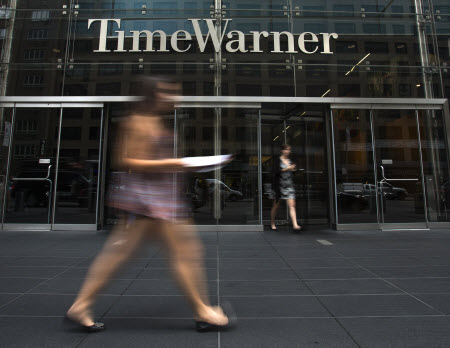Time Warner vs. Time Warner
The smarter way to stay on top of the multichannel video marketplace. Sign up below.
You are now subscribed
Your newsletter sign-up was successful

New threats to the quick completion of Charter Communications’s $78.7 billion purchase of Time Warner Cable have surfaced from none other than TWC’s former corporate parent, Time Warner Inc., which has raised concerns with federal regulators over the combined company’s attitude toward over-the-top video competitors.
Meanwhile, FCC staffers continue to ask new questions about the power of the combined MSOs over new OTT service providers.
Charter last May agreed to purchase TWC in a cash and stock deal valued at $78.7 billion. That union was first expected to be completed by the end of 2015, but the window has since been expanded to the first quarter of this year.
If the deal is finalized, the combined Charter-TWC would have about 17.4 million customers across the country, including systems in New York and Los Angeles, and would be the third largest multichannel video programming distributor behind AT&T-DirecTV (26 million) and Comcast (22 million).
While the Charter-TWC deal is currently being reviewed by the FCC, a meeting on Jan. 11 between FCC staff members and executives at Time Warner Inc. and its premium service HBO has cast some doubt as to whether the deal will pass muster. Several Time Warner Inc. executives, including HBO president of global distribution Tom Woodbury, met with FCC staffers to discuss the merger, according to the ex parte filing of the Jan. 11 meeting.
The discussion centered around certain statements made by Charter executives that Time Warner Inc. said it believes “suggest that a combined Charter-Time Warner Cable would be inclined to take action directed at programmers in response to the development of ‘over the top,’ or ‘OTT,’ services with the purpose and/or effect of slowing down the development of OTT options to the detriment of consumers,” the filing stated.
Industry executives were mixed on what it all could mean. While the FCC has been a proponent of OTT, it hasn’t been entirely averse to big deals — it approved AT&T’s $48.5 billion merger with DirecTV, for example. And though most believe the Charter-TWC deal will win approval with conditions, the same thoughts preceded Comcast’s April decision to terminate its TWC deal.
The smarter way to stay on top of the multichannel video marketplace. Sign up below.
Investors weren’t sure either. On Friday (Jan. 15), when the overall market was down more than 400 points by midday, Charter shares were down 4.1% ($7.12 each) to $165.19, and TWC shares dipped 3% ($5.24 each) to $176.72 per share.
In an interview last week at an event announcing Charter’s diversity plans after the merger (see next page), Rutledge said he was confident the deal would be approved but offered no predictions.
“We are doing well — most all of the states have approved the deal, and we’re working our way through the federal approval process, and I think that’s going well,” Rutledge said. “We haven’t attracted that much opposition, so we’re actually pleased at where we are.”
While Rutledge has talked tough about OTT in the past, he has softened his tone considerably in the wake of the TWC deal; in September, at the Goldman Sachs Communacopia conference, he said operators should “embrace OTT” because it drives broadband growth.
The FCC is clearly focused on access to over-the-top video in the Charter-TWC-Bright House Networks deal.
In a blog posting Friday (Jan. 15), BTIG media analyst Rich Greenfield pointed to past comments by Rutledge that seem to indicate there would be risks and consequences for programmers that go over the top.
While it’s too early to tell whether deal approval is in jeopardy, Greenfield highlighted some thorny issues facing Rutledge.
“[Y]ou have to ask yourself, ‘Is it really in the government’s best interests to allow him to control 25%-30% of U.S. broadband?’” Greenfield wrote. “Can Rutledge really be trusted and, if not, what conditions would protect the future of OTT video for consumers?”
On Jan. 4, the FCC paused its informal 180-day shot clock on the deal until Jan. 19 to give it more time to vet a raft of new and supplemental documents, including responses from Liberty Media to a laundry list of questions about access to over-the-top that reflected the FCC’s concerns.
Among those were queries about the incentive or ability of Liberty and/or its chairman, John Malone (who owns a 27% stake in Charter) to withhold programming from OVDs or MVPDs other than New Charter.
The FCC also asked for all documents from Liberty in which it had discussed HBO Now, CBS All Access, Comcast’s Stream, Dish’s Sling TV, Sony’s Playstation Vue or any other OTT streaming service.
